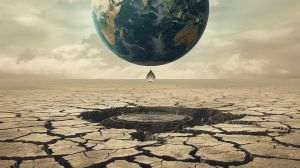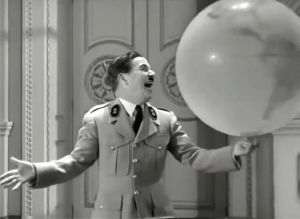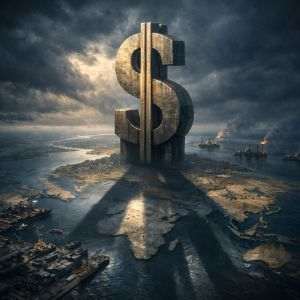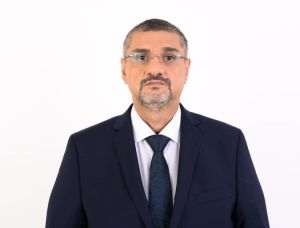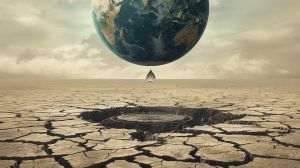The US-China trade war will slow the growth of the global economy this year at the lowest annual rate since the 2008-2009 crisis, warned the International Monetary Fund (IMF).
In addition to the downward evolution of the global economy, the growth of world trade volume will be only 1.1% in 2019, well below the 3.6% growth in 2018 and the growth of production, which means a deglobalization process regarding trade and turbulence in global supply chains.
According to Kristalina Georgieva, the new head of the IMF, the expectations are "that the pace of economic advance will slow down in almost 90% of countries, globally". Georgieva also noted, at the recent annual meeting of the IMF in Washington, that "the world economy is currently in a period of synchronized slowdown", but arguments can also be made for "a synchronized stagnation", as a recent research by the US Brookings Institution and the Financial Times has shown recently.
At the same time, in the absence of almost simultaneous monetary relaxation policies by the big central banks, the global growth will be 2.5%, in 2019, half a percentage point lower than the estimate, with the world economy being practically on the verge of recession, according to IMF chief economist Gita Gopinath.
"The slow growth is caused by the sharp worsening of manufacturing activities and world trade, with higher tariffs and prolonged uncertainties related to trade policies, which worsen investments and demand for means of production", said Gopinath. The IMF report also adds the fact that the global manufacturing sector, which is in recession, will come back if its commercial uncertainties are eliminated.
As Larry Summers, former secretary of the US Treasury says, the big problem is not the global economic downturn itself, but the "legroom" (the Federal Reserve only raised its key rate to 2.5% in the beginning of the year, while the ECB did not even start the rate hike cycle in the last decade) and the willingness (Germany's historical reluctance to increase budgetary spending) to answer the relevant issues.
As for our country, the IMF has revised upwards to 4% the estimates regarding the evolution of the Romanian economy, together with an increase of the inflation rate to 4.2% and of the current account deficit to 5.5% of the GDP.
"Several countries in Central and Eastern Europe are showing strong growth, amid strong domestic demand and rising wages," IMF experts say.
As for our country, the IMF has revised upwards to 4% the estimates regarding the evolution of the Romanian economy, together with a rise of inflation to 4.2% and of the current account deficit to 5.5% of GDP.
"Several countries in Central and Eastern Europe are showing strong growth, amid strong domestic demand and rising wages," IMF experts say.
• Adrian Vasilescu: "Our forecasts and those of the international institutions are positive, there is no reason for now to speak of economic contraction in Romania"
In this context, Adrian Vasilescu, a strategy consultant with the NBR, told us that, in the case of Europe, in Germany the drop in new orders continues and a job-cutting trend among companies.
He told us: "There is also the warning of Nowotny (ed. note: Ewald Nowotny, the governor of the central bank of Austria from 2008 to August 2019), who in the last press conference said he was looking at Germany, where the warning signs come from, and he knows that Austria would be the first (country) to be hit."
As for Romania, Mr. Vasilescu said that the forecasts of the National Bank of Romania and of the international institutions concerning the evolution of the national economy are still positive.
However, Adrian Vasilescu wanted to specify that if the main economies of Europe with which we trade will slow down, among them Germany, Italy or the United Kingdom, our exports could suffer.
"For now, forecasts are positive. Let's see what it will be like in 2020 and 2021, because no one is talking about a recession in 2019, "said Vasilescu, who also noted that it is not guaranteed that all the European countries will enter a synchronized recession.
The NBR official explained: "The nearest (recession) was that of 2009, a global recession, and out of the 28 EU countries, Poland avoided the recession. It's not a given that if Europe enters a recession, every European country does. Poland avoided it in 2009. I don't know if we are read to enter a potential crisis, but it's not impossible".
Adrian Vasilescu also told us that there are no signs that Germany would scrap its historical fiscal cautiousness and push the acceleration pedal.
"For now, the German press is speaking about the end of abundance", Vasilescu said. "Brexit is one of the causes of a potential recession. There are forces struggling to halt Brexit, there are forces pushing it forward. It seems the «end of October» deadline is a failure, even if the Queen's speech mentioned Brexit at the end of this month. As far as the trade war between the United States and China, there are signs that things are getting better, but there are also questions around that".
Adrian Vasilescu also noted that Europe is "afraid" of inflation below the 2% target and that the ECB has been "struggling" for some time to raise inflation to that level and has been failing.
"Inflation has long ago stopped being a monetary phenomenon", the NBR official said.
• Aurelian Dochia: "If Germany starts a program for the stimulus of budget expenses or tax cuts, the impact will be felt mostly locally"
Economic analyst Aurelian Dochia believes that the negative evolution of the Romanian manufacturing sector will eventually affect the services sector.
He said: "All sectors of the economy are tied to each other, and if one of them experiences a weakness, it eventually gets transmitted sooner or later to the others. Obviously, if the manufacturing sector slows down, services will feel that later. So far, services have been greatly held up by the consumption of the population. Almost everywhere, consumption has succeeded in forgetting the alarm signals regarding the recession, and the population had a robust consumption. But, however if feelings of hesitation or even outright panic compared to consumption, we will probably very quickly see stagnation or reorganization of activity and services ".
Regarding the vulnerability of our economy, considering the correlation between the Romanian and German manufacturing sectors, Mr. Dochia noted: "In the indicators of the Romanian industry, this influence has been felt in the last few months. The evolution of the industry has been very weak and if in Germany and generally in Europe, where we have the main trading partners, that weakness endures, there won't be any way to escape.
The Romanian industry represents an important percentage of the GDP, much higher than in other countries (in the region), so the impact will be felt by the whole economy. Obviously, for some time, things have been good for us, as consumption has been stimulated by revenue increases, which have not stopped yet. We even had a pension increase in September, so consumption is still a solid pillar of economic activity, but it won't be long and the world will start to see question marks if the indicators of industrial production and the other indicators on the economy will be weak".
The evolution of the industry has been very weak and if in Germany and generally in Europe, where we have the main trading partners, that weakness endures, there won't be any way to escape. The Romanian industry represents an important percentage of the GDP, much higher than in other countries (in the region), so the impact will be felt on the whole economy. Obviously, for some time, things have been good for us, as consumption has been stimulated by revenue increases, which have not stopped yet. I even had a pension increase in September, so consumption is still a solid pillar of economic activity, but it won't be long and the world will start to have question marks if the indicators of industrial production and the other indicators on the economy will be lose weight".
As for the start of a program to increase budgetary spending by Europe's largest economy, the economic analyst said that there is much discussion in this regard at EU level, and Germany's European partners have publicly expressed this opinion, that Berlin is at the point where it should launch a fiscal stimulus for the economy.
That's because Germany can afford that. Germany has a budget surplus in recent years and borrows on the financial markets at negative costs. Maybe to a certain extent it will do that. Berlin politicians are beginning to think about that. But that does not mean that it will be an escape for the whole of Europe and for Romania, because, if Germany starts such a program to stimulate budgetary expenses or reduce taxes and fees, the impact will be mostly local. If they start investment programs, they will be directed to German infrastructure and German industries, so it will not have an immediate impact on other economies, Aurelian Dochia told us.
As for the much discussed adjustment of budget expenditures in Romania, Mr. Dochia told us that the political parties will take every step to avoid measures with negative impact before the 2020 parliamentary elections.
"Neither tax increases, nor spending cuts. There will probably be some talks about optimizing the public administration apparatus, but it will remain a discussion. I don't think there will be any concrete, sweeping measures. The political judgement will go before the economic ones", Mr. Dochia concluded.
• Adrian Mitroi: "I hope the correlation coefficient between political drama and economic reality is decreasing"
Adrian Mitroi, professor of behavioral finance at the Romanian Academy of Economic Studies, said that the high share of services in the economy reduces the impact of the decrease of production at the European level.
"The structure of the Romanian economy is changing. For instance, IT is already contributing to a 2-figure economic growth, IT which depends less on the physical infrastructure and more on the digital infrastructure. Services are more insulated", said Mr. Mitroi, who added that this component of the national economy has become very weakly dependent on the public policies of the last few years.
He continued: "Our economy is resilient - IT, services, agriculture, sufficiently well buffered unemployment. Romania's economy is robust and we need a slight slowdown in order to reallocate investment assets (...) 4% economic growth is well above the European average growth ".
Adrian Mitroi also said that the national economy is no longer overheated and that "inflation, current account deficit and economic growth of 4% are the new reality in which we will operate" in the short term.
"I hope the correlation coefficient between political drama and economic reality is decreasing", the analyst concluded.


